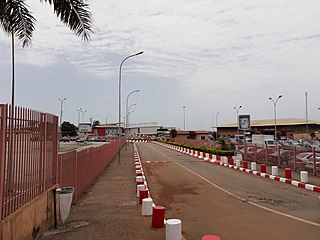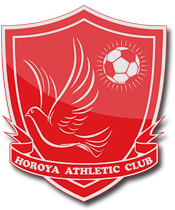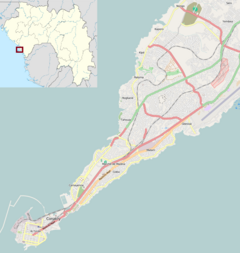
Guinea, officially the Republic of Guinea, is a coastal country in West Africa. It borders the Atlantic Ocean to the west, Guinea-Bissau to the northwest, Senegal to the north, Mali to the northeast, Côte d'Ivoire to the southeast, and Sierra Leone and Liberia to the south. It is sometimes referred to as Guinea-Conakry, after its capital Conakry, to distinguish it from other territories in the eponymous region, such as Guinea-Bissau and Equatorial Guinea. Guinea has a population of 14 million and an area of 245,857 square kilometres (94,926 sq mi).

Conakry is the capital and largest city of Guinea. A port city, it serves as the economic, financial and cultural centre of Guinea. Its population as of the 2014 Guinea census was 1,660,973.

Ahmed Sékou Touré was a Guinean political leader and African statesman who was the first president of Guinea from 1958 until his death in 1984. Touré was among the primary Guinean nationalists involved in gaining independence of the country from France. He would later die in the United States in 1984.
Compagnie Nationale Air Guinée, in its latter years known as Air Guinee Express, was an airline based in Conakry, Guinea. Its main base was Conakry International Airport.

Ahmed Sékou Touré International Airport, also known as Gbessia International Airport, is an airport serving Conakry, capital of the Republic of Guinea in West Africa. It parallels the south shore of the Kaloum Peninsula approximately five kilometers from its tip. Autoroute Fidel Castro connects the airport to Conakry proper.

Horoya Athletic Club, also known as Horoya Conakry or H.A.C., is a Guinean professional football club based in Conakry, Guinea. The club plays in the Ligue 1 Pro, the top tier in the Guinean football league system. It was founded in 1975.
Articles related to Guinea include:

Air Zaïre was the national airline of Zaire. Its head office was located on the grounds of N'djili Airport in Kinshasa.
Balla et ses Balladins was a dance-music orchestra formed in Conakry, Guinea in 1962 following the break-up of the Syli Orchestre National, Guinea's first state-sponsored group. Also called the Orchestre du Jardin de Guinée, after the "bar dancing" music venue in Conakry that still exists today, the group made a number of recordings for the state-owned Syliphone label and become one of the first modern dance musical groups in Guinea to use traditional musical instruments and fuse together traditional Guinean folk music with more modern influences.
Camp Boiro or Camp Mamadou Boiro (1960–1984) is a defunct Guinean concentration camp within Conakry city. During the regime of President Ahmed Sékou Touré, thousands of political opponents were imprisoned at the camp. It has been estimated that almost 5,000 people were executed or died from torture or starvation at the camp. According to other estimates, the number of victims was ten times higher: 50,000.
The Hotel Mariador Palace is a hotel in Conakry, Guinea. It is situated in the Quartier de Ratoma area of the city. The hotel was built in 1999, using investment from the Far East. It is the third of a chain started by Guinean entrepreneur Mohamed Lamine Sylla in 1987.

The Cathédrale Sainte-Marie is an important place of Christian worship in Conakry, Guinea. The yellow and red building is of considerable architectural interest.
The Sekhoutoureah Presidential Palace in Conakry, Guinea, is the official residence of the president of Guinea. The Palais Presidentiel Sekhoutoureah is behind the Cathédrale Sainte-Marie.
The Clinique Ambroise Paré is a hospital in Conakry, Guinea, is considered to be the best hospital in the country.
Conakry Botanical Garden is a botanical garden in Conakry, Guinea. It is located in the Camayenne part of the city, with the Ambroise Paré Hospital to the south and Conakry Grand Mosque to the north. It is noted for its kapok trees.
Marché du Niger is a market in Conakry, Guinea, slightly smaller than the other main market in the city, Marché Madina. It sells fruits and vegetables but reportedly has an issue with pickpocketing.
The Guinea National Library is the national library of Guinea, located in the capital city of Conakry.
The following is a timeline of the history of the city of Conakry, Guinea.









